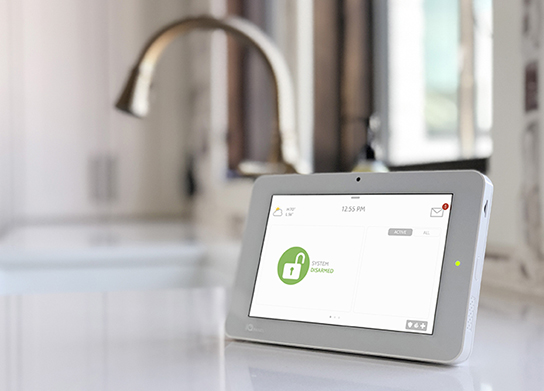If you are looking for a home security system, choosing one can be a challenge. That’s why you need a guide like this to help decide one that’s best. We’ll take a look at ten things that you’ll need to consider.
It’s important that you consider looking for one that will cover all your needs and preferences. That’s why this guide will be more than helpful. These are the Smith Thompson ideas we want to share with you whenever the time comes to protect your home.
So let’s take a look at what they are so you can consider which factors will help you make the right decision.
Price
The price may be something worth looking at first and foremost. Especially if you are on a budget. Keep in mind that the larger your security system, the more it’s going to cost.
Likewise, your most basic security system will have fire and burglary protection. Anything beyond that will be an additional cost. So it may be a good idea to consider how much you’re going to get at the price you can afford.
Quality and performance should be your top priorities. You don’t want to intentionally be cheap and sacrifice any features that can lead to security vulnerabilities throughout your house.
Equipment included
Every security system will have equipment that is included for burglaries, fire protection, and anything else in particular. Depending on the amount of coverage you need, there will be a specific amount of equipment that will be included such as the main hub (or panels).
Cameras will also be a staple for any security system. Motion sensors and alarms are also another thing that will often be included. You may also have equipment that can detect carbon monoxide, water leaks, or medical emergencies (particularly if you have elderly family members living with you).
Compatibility with Wi-Fi, Cellular Data, etc.
Compatibility is something you’ll want to look into. WiFi will be the common option. However, electricity and WiFi outages can happen. That’s why there are security systems out there that will use cellular data so they stay running even if the power goes out.
That’s because they’ll rely on local cellular towers and continue to record footage and detect any dangers that may arise. You’ll have peace of mind knowing that you’ll have a security system that is reliable even when two of the much needed things may not be available temporarily.

Wired or wireless
There are two kinds of security systems on the market: wired or wireless. Wireless security systems will be easy to set up and will require batteries, Wi-Fi, and cellular connections (among others). A wired connection will be hardwired and will mostly require a professional install.
Of course, a wired security system will be great if you want maximum protection. However, it can cost more. Plus, there are lots of holes that will be drilled into the walls along with miles of cable running through.
Remote monitoring
We live in an age where we have remote technology. We can be able to access anything from anywhere. This is the case with security systems.
So it would make a lot of sense if you get a security system where you can monitor everything. You’ll need a dedicated app along with a compatible mobile device. So when you’re not home, you can be able to see what’s going on at the touch of a button.
Smart technology
Security systems are getting smarter these days. To the point where you’d be crazy not to have smart locks in your home. Your doors can be locked during a certain time period that you set up yourself.
You’ll also be able to lock them at the touch of a button whenever you leave. On top of this, you’ll also have real time alerts when something is happening. It can be a fire, water leak, or a break-in.
Type of power
As mentioned, power outages can happen at any time. So it may be a good idea to find a security system that is powered in a specific way. Solar energy may be the best alternative compared to standard electricity.
Again, you’ll also want to consider cellular data as an alternative. In case the power is low or out completely, it will help to have an alternative source keep it all up and running.
Size of your home
The size of your home will play a role in the kind of security system you are looking for. It may seem like overkill if you get a security system for a large home when yours is a single level with a bedroom and a bathroom. The smaller your home, the smaller the security system.
So, you want it to come down to how much coverage you can get throughout your home.
Real-time vs recorded video
Not all security systems will have cameras that will show you live, real-time footage. They may be recorded when certain situations occur. You’ll want to find out which kind of video will serve you best.
Real-time will be the best option since you’ll be able to see what’s going on the moment you check in. With recorded video, it will be recorded and saved to local storage. You may be able to know what’s going on after the fact.
Camera footage quality
Camera footage quality will come in handy. When you see suspicious individuals on your property, the quality should be good enough to recognize them. The police can use the person’s face, clothing, and other elements that can help them track down the person of interest.
1080p may be a good option but it may be the lowest quality, despite providing decent visibility. The higher the quality, the better. Plus, you’ll be able to easily see what the person looks like.
You don’t want a camera that will be choppy or blurry all the time when it’s filming.






